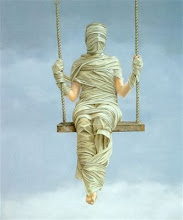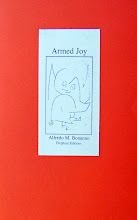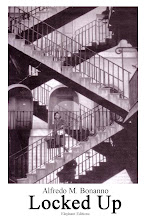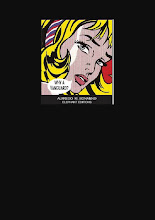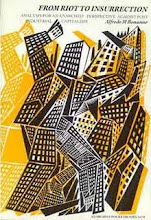Order and chaos. In language these two terms are indissolubly linked. Chaos is the opposite of cosmos, so existed before it? Not exactly. Let’s say it is that which is non-world. And if we were to prefer to live in a non-world, i.e. in our chaos, rather than world we are living in now? Obviously we cannot imagine living in the yawning original chaos. But we can think of a non-world in which chaos is neither an indirect rule nor a fantasy that only serves to develop a critique of what is not right in the ordered cosmos of the powerful and their stupid servants, given that we cannot get anything positive out of it, even searching with the lantern of Diogenes.
There are no positive aspects for us in the world that hosts us, not even the strictly linguistic (and technical) ones that are allowing us to write these few lines. There is nothing to save. The world as a rational organisation of relations and judgements does not concern us. The critique of this monstruosity is a product of the monstruosity itself, it is mass-produced so there is no need to let the sweat from our brows soak a few reams of paper in order to elaborate it.
And because, with the madness that has distinguished us for so long, we want to give life to a continuative non-discourse, in other words a periodical, shamelessly estranged to the very means it uses, the word, it is good that we understand each other right away. May whoever finds the project of saying the unsayable impossible quit the game now to avoid poisoning his liver later. May those who find it hard to grasp such a project relax, there is nothing to understand, it is pure madness.
So, what do you have against madness? Our comrades of long duration or new accidental trivial aquaintances? Nothing for the form, equivalence, assunti, demonstration, hypotheses, documentation, syllogisms and whatever else belongs to the logic of the little by little that continues to foraggiare gail, especially concerning the critical part, the barricading of the enemy.
Willard van Orman Quine
Now for the substance. When a precise indication appears in front of us, let’s say an address, it will be as though there is a stone tied to it, a broken bottle, a double-edged token, what can I say, anything, still in joint ownership with the enemy, but not belonging to the linguistic category.
With stones these worthy people also build prison walls, so we can’t think that by holding one in one’s hand (a stone I mean) one is on the side of reason against the repressive shrewd vision of life. These distinctions will never be clear. In itself, a molotov is just a bottle three quarters full of petrol (or other inflammable liquid) with a soaked rag , etc., etc., and even with all the goodwill in the world it does not make a revolutionary. To mythisize it is, yet again, to fall into the contradiction of the weapon that has accompanied us for the past forty years. Enough.
The fact is that we don’t want to stay on the side of reason. The world, also that which the respectable (future shrewd repressors) want to render clean and breathable, finally free of pollution and desertification, is still the world for us. We don’t like it, it is not in the name of this utopian panacea that we are prepared to fight. The world is still a product of order and these philological custodians of nature are the future co-workers of tomorrow’s hangmen.
The order that characterises the life where they want to hold us prisoner is religious, it requires respect for the law, rules and rituals that we don’t want to accept, that don’t belong to us. We are therefore not supporters of their revolution, scientific or other as it may be, our revolution is chaos. We don’t want to evolve towards a pacification with the cop or the comrade bureaucrat, awaiting the moment to be thrown to the wild beasts. Nor do we want to become the crutches of all the wretched of this world, a growing army, beating like an immense beast on the doors of the city walls to be allowed admission into the great benefits of the open prison, thus enjoying, in exchange for one’s dignity and fictitious productivity, a few bones thrown here and there.
Chaos is not disgregation from order, for which we would find ourselves, along with the dissidents of every hue, not knowing where we put our clothes last night before going to bed. It is the absolutely other. It is not disorder, it is non-order, two different concepts that it is well to clarify. Order is uniformity, it is correspondence, classificability, clarity, rationality and utility. Chaos is multeplicity, variability, probability, uncertainty and, basically, uselessness.
Never as today have we had need of multeplicity in the face of a repressive organisation that has one thousand instruments of order, not least the consciences sold at the flea market by those that acquired them with the blood and struggle of their comrades of the past. If even the workers, last imaginary bastion, old guard hard and pure, if they did not leave in the face of the disgusting spectacle of a now naked politic, and if in this disgust of theirs they have sold out the possibility of an attack against those responsible for exploitation – politicians and trades unionists included - , nor do we want to hang on to the disappeared resistance groups that restrained by the tail their comrades that turned their backs on the old ideals (but whyever shouldn’t they have? Perhaps for some other commemoration of the partisan struggle?), nor the custodians of the secret of all revolutions: the masses legitimise and guarantee, it’s enough to find the right tone, the right model, the right occasion and the right men, and the revolution is just around the corner. There, we don’t want this uniformity, forerunner of order and guarantee, we want another methodology, multifarious and varied, free and explosive in the choice of its methods and also in the critical capacity to put in an analytical light on old projects and old models of revolutionary intervention. Multeplicity is also freedom to look for our comrades, once again, stubbornly, look for them freely, not starting from the common modules of intention frayed by time and malcomprehension, to look for them to do together what we can also do alone but which together we think can be multeplicetly more effective. That’s what we want to do.
skip to main |
skip to sidebar

Some writings of Alfredo Maria Bonanno in English, or almost

Alfredo Bonanno was arrested on October 1st 2009 in Greece, accused of concourse in robbery. With him, anarchist comrade Christos Stratigopoulos.
Here are a few translations and part translations of a small portion of Alfredo's writing. This is a work in progress, many of the translations are as yet incomplete. Open links to find more of Alfredo's work.
Alfredo Bonnano Released
Nov. 22 Alfredo Bonnano was sentenced to 4 years imprisonment (which practically means that with the time served so far and the fact that he is over 70years old HE IS RELEASED
Christos Stratigopoulos (who took responsibility for the action)
was sentenced to 8 years and 9 months with the Greek law will probably be released at the end 2011
BY ANY MEANS NECESSARY
LINKS
click on any of these labels to read text
- "Community" sickness
- 1981 - Editorial
- A Critique of Syndicalist Methods
- A few notes on Sacco and Vanzetti
- A few notes on the revolutionary movement in Italy
- A little man in Singapore
- A million jobs
- A question of class
- Affinity
- After Marx autonomy
- Albania Laboratory of Subversion (Introduction)
- Anarchism and the national liberation struggle
- Anarchists and action
- AND WE WILL ALWAYS BE READY TO STORM THE HEAVENS AGAIN (Against amnesty)
- ANTI-INSTITUTIONAL MOVEMENT
- Are we modern?
- Armed Joy
- ARMED STRUGGLE. SOME REFLECTIONS.
- Autonomous base nuclei
- beyond syndicalism
- Beyond workerism
- But what is the imaginary?
- Class War
- Comiso - Organizational document of the self-managed leagues
- Considerations on illegality
- Dissonances (Introduction)
- Elephant Editions 1986
- Excluded and included
- Farewell to claiming
- Feral Revolution (Introduction)
- FICTITIOUS MOVEMENT AND REAL MOVEMENT
- For an Antiauthoritarian Insurrectionist International - Proposal for a debate
- From riot to insurrection
- From the centre to the periphery
- Good technology
- Guerilla Extraordinary
- Habits and idols
- Hegel
- I know who killed chief superintendent Luigi Calabresi
- Illegality
- Illness and capital
- Informal organisation
- Insurrection
- Internationalism
- Introduction to Sabate
- Introduction to Anarchism and Violence
- Introduction to Bratach Dubh English edition of Malatesta's Fra Contadini
- Introduction to Insurrectionalist Anarchism
- Introduction to Strange Victories
- Introduction to The Conquest of Bread
- Involuntary aspects of voluntary work
- Let's destroy work
- LET'S DESTROY WORK. New introduction
- Let's keep our feet on the ground please
- Lightening Conductors and Stand-ins - more shots of non-news
- Lightning Conductors and Stand-ins
- Lightning Conductors and Stand-ins (cont.)
- Locked up
- Looking forward to self-management
- Loss of language
- More on internationalism
- National Liberation Struggle
- nineteen years on
- No more crises
- Non-news about drugs
- Non-news about racism
- Ode to the Uniform
- On Feminism
- One's life on the line
- Order and chaos
- Otto Ruhle (Introductory Note)
- OUR ROLE IN THE PRESENT CONFLICT
- Palestine mon amour
- Pantagruel anarchist review
- Pinelli
- Prison and Prisoners’ Struggles - Introduction
- Propulsive Utopia
- Quality and the factory
- Restructuring Capital and the new democracy
- Revolution - Violence - Antiauthoritarianism
- REVOLUTIONARY VIOLENCE
- Science and the social revolution
- Self-management
- Severino Di Giovanni in Argentina 1923-1931 by Osvaldo Bayer
- Social banditry
- SOME NOTES -
- Space and Capital
- Stirner
- Stop the City? From information to attack
- Strategy and Methods
- Streamlined production
- The "end" of the crisis
- The aesthetics of anarchism
- The anarchist tension
- The area of autonomy and the anarchist movement in Italy
- The armed wing of science
- The Cruise missile base at Comiso can be prevented
- The ethical bank
- The insurrectional project
- THE LANGUAGE OF TECNICS -
- The logic of insurrection
- The moral split
- THE NECESSARY DESTRUCTION -
- The priority of practice
- The refusal of arms
- The revolutionary project
- The revolutionary struggle
- The significance of an insignificant event
- The struggle for self-managed social space
- The tyranny of weakness
- The whole and the part
- The young in a post industrial society
- Theory and action
- Towards anarchist antimilitarism
- TOWARDS THE GENERALISATION OF ARMED STRUGGLE
- TRANSFORMATION IN THE WORLD OF WORK AND SCHOOL -
- TRUTH -
- Unemployment in Italy - How come everything doesn't explode?
- Untitled
- Violence and non-violence
- What are anarchists
- What can we do with anti-fascism?
- Why a vanguard?
- Why Insurrection
- World domination in a few words

